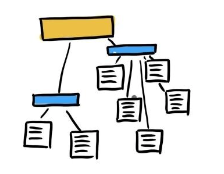
Abstract: The study aims to explore the data collection procedures and analysis of public sector accounting (PSA) practices in Bangladesh. This study adopts a qualitative methodology, employing interviews with government accountants and regulatory personnel. To investigate current public sector accounting practices and issues in Bangladesh, a significant focus is placed on government accountants due to their practical expertise and alignment with the study's purpose. Out of the 95 respondents from entities such as the CGA (50), CAG (20), Ministry of Finance (05), iBAS++ project (10), and academic community (10), a total of 22 interviews were meticulously chosen to meet the study's goals, ensuring the highest level of data quality. Data collection tools encompass semi-structured in-depth interviews featuring targeted questions, supplemented by participant observation and document analysis. In conjunction with interviews, the researcher employs direct observations to document participants' behaviors and activities and those of the studied institutions and companies. Before inputting data into computer software, the researcher conducted data analyses and coding interpretation. NVivo software was employed for data classification, clustering, and memo-writing facilitation. Supporting data from document reviews and observations are also taken into account. When the researcher listens to the recordings and notices similar responses and comments from respondents across different locations, consistently revealing similar data, the researcher focuses on refining thematic arrangements within the data categories. The data saturation occurred in different phases, encompassing information, observations, and documentation. For instance, in the case of public sector accounting practices, saturation was observed with the 13th participant concerning regulatory-related questions and procedures. Regarding problems and issues of PSA, saturation was reached with the 19th individual, and ultimately, overall saturation concerning expert experiences was attained with the 22nd respondent. Furthermore, the researcher engaged in discussions with numerous additional respondents to gain insights from these three distinct backgrounds.
Keywords: Public sector accounting; data collection procedures; data analysis; data saturation
